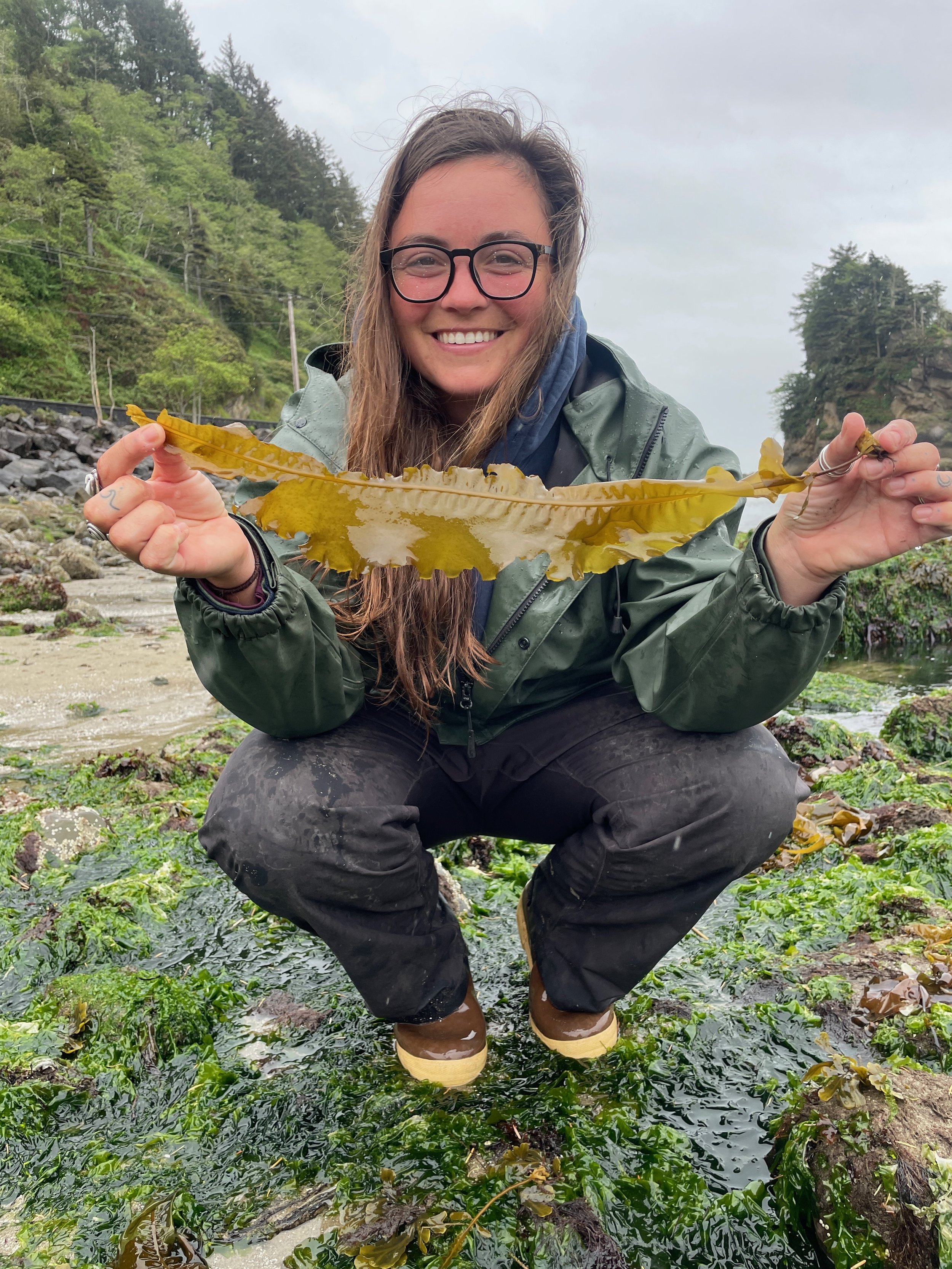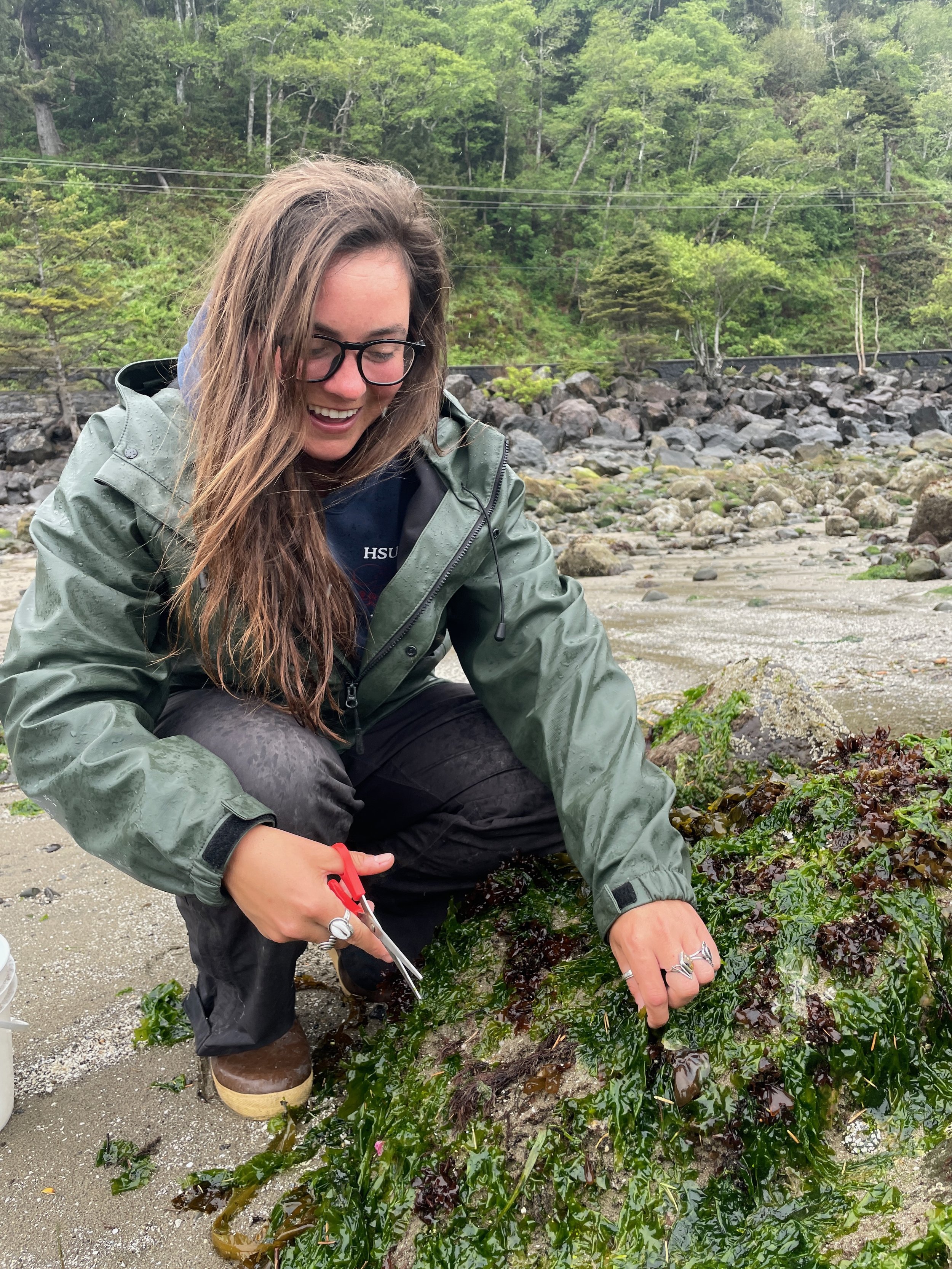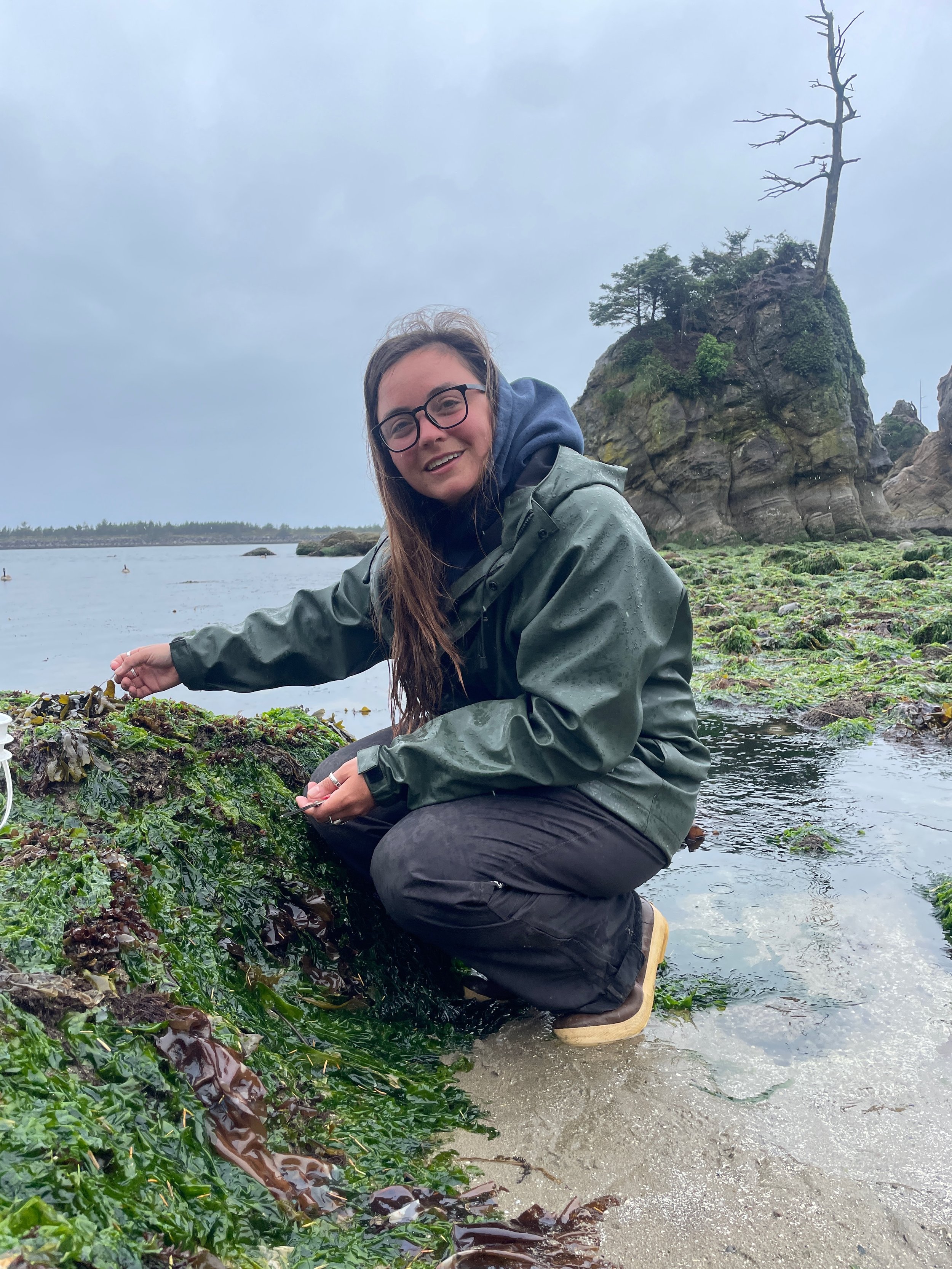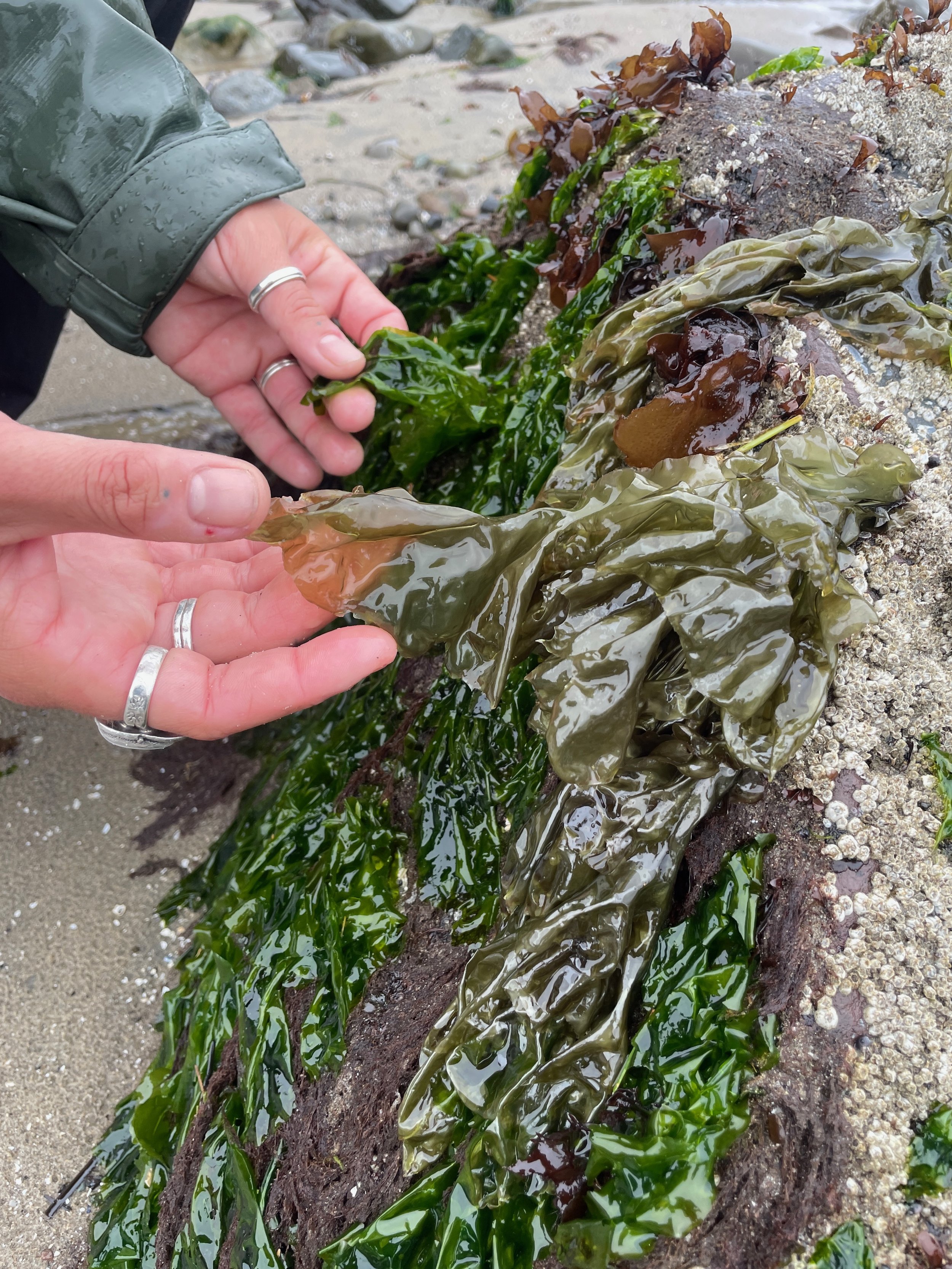Get some vitamin sea
Need some inspiration to spice up your diet? Kelp is at hand.




By Gretchen Ammerman
Oregon Coast TODAY
Alanna Kieffer digs seaweed. Or, more accurately, she cuts pieces of it off with scissors, leaving intact the “hold fast” and the lower part of the leaf so that it can regrow.
A teacher, culinary explorer and cultivator with a background in marine science, Kieffer has a true passion for sea vegetables, especially kelp.
“I taught in the Channel Islands and that sparked my love of kelp,” she said. “It was an ecosystem that I barely knew existed and now I’m in love with kelp forests.”
Through her business, Shifting Tides, Kieffer leads private and group tide pool tours and educational forays to learn about harvesting the fruits of the sea, including seaweed, clams and mussels.
“This is the season for workshops,” she said. “The clam and mussel harvesting tours are always popular, but people’s interest in seaweed has been really growing.”
(As of the time of this writing, high levels of biotoxins have caused closures of shellfish harvesting on many portions of the Oregon Coast.)
In partnership with Oregon Shores Conservation Coalition, Kieffer will lead a Seaweed ID Class in Newport on Tuesday, June 25.
The workshop will cover the intertidal ecology and oceanography of the Oregon Coast, specifically how it pertains to seaweed, how to identify various species of seaweeds and how they can and have been used in culinary and healing treatments for centuries.
Though seaweed that has washed ashore can be collected at any time, the season for harvesting live specimens begins in March and ends on Saturday, June 15, so there will not be any harvesting during this workshop.
Kieffer re-washed ashore on the Oregon Coast when COVID shutdowns forced her out of Catalina Island, where she had been living and working.
“My mom lived here so I came back,” she said. “I really didn’t know what I was going to do but I got re-hired at Haystack Rock Marine Garden where I had worked in the past.”
Then Kieffer heard about a new company that would go on to become Oregon Seaweed.
“When I heard there was a dulse farm being built, I got involved,” she said. “People often think I’m the owner because I am the face of it, but I just work there.”
Oregon Seaweed and Shifting Tides do share goals, including getting people to eat more sea vegetables.
“I was working with a bunch of chefs and I realized the problems of getting food to plates is what sustainable food systems means. I also found out how little people know about things like the importance of kelp beds for our entire marine ecosystems, and that’s why I started Shifting Tides.”
On a misty morning early in the harvesting season, Kieffer and I met at a spot near Rockaway Beach.
We immediately scored three edible seaweeds, and she cut the leaf off of one and handed me a piece to try while dropping the rest into her collection bucket. It tasted like… nothing. After a bit more hiking around, Kieffer, with a lovely blend of knowledge and enthusiasm, showed me how to identify things like nori, known as the wrapping for sushi rolls.
We headed back to our vehicles and, Kieffer, who had come prepared, created a sample platter of foods that included the seaweeds we had just harvested and Kieffer’s hand-pickled kelp bulbs. Using only the smallest amount of seasoning, she treated me to one of the better small plate meals of my life. The seaweed I had sampled on the beach, with the addition of only a smidgeon of olive oil and heat, had become something very tasty. The cooking process brought out the natural salts, so none needed to be added.
The joy in my chef’s face showed how much she truly enjoys introducing people to new ways to enjoy this sustainable food.
“We’ve had such good feedback from people trying it,” she said. “I have many people signing up for the foraging classes after tasting recipes at our culinary series.”
Kieffer and a partner work with Oregon chefs each summer for an annual series of meals and demonstrations all over the western part of the state.
“Getting people to appreciate sea vegetables as a sustainable food resource is a way to hopefully get people to understand the importance of preserving them,” she said. “In schools we get very little education about ocean ecosystems. When I speak in schools, I show a picture of a tree forest, and then a kelp forest and show how beautiful and complex they actually are and the kids get really excited to know more.”
The June 25 Seaweed ID Class will run from 8:30 to 11:30 am. Registration fee is $60. For more information about Shifting Tides and the upcoming workshops, go to shiftingtidesnw.com.
